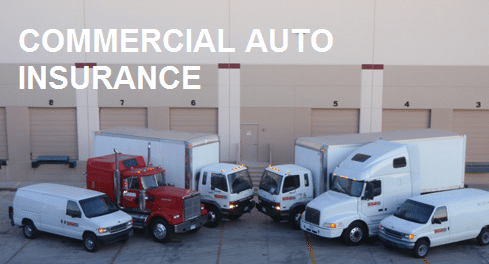Introduction to Commercial Auto Insurance
Commercial auto insurance is essential for businesses that utilize vehicles in their operations. It provides coverage against various risks associated with business vehicles, ensuring financial protection and compliance with legal requirements.
1. Understanding Commercial Auto Insurance
Definition and Scope
Commercial auto insurance covers vehicles used for business purposes, including trucks, vans, and company cars. It protects against liability, physical damage, and other risks that can arise during business operations.
2. Importance of Commercial Auto Insurance
Safeguarding Business Assets
Having commercial auto insurance is crucial as it protects business assets from unforeseen circumstances such as accidents, theft, vandalism, or natural disasters. It also covers legal expenses in case of lawsuits.
3. Types of Coverage
Comprehensive Protection Options
- Liability Coverage: Covers bodily injury and property damage liability for accidents involving business vehicles.
- Collision Coverage: Pays for damage to your vehicle caused by a collision with another vehicle or object.
- Comprehensive Coverage: Protects against non-collision incidents like theft, vandalism, fire, or natural disasters.
- Uninsured/Underinsured Motorist Coverage: Covers expenses if your vehicle is involved in an accident with an uninsured or underinsured driver.
4. Factors Influencing Premiums
Cost Considerations
Premiums for commercial auto insurance depend on factors such as:
- Vehicle Type: Size, usage, and value of the vehicle.
- Driver History: Driving records and experience of employees using the vehicles.
- Coverage Limits: Higher limits and additional coverages increase premiums.
- Deductibles: Choosing a higher deductible can lower premium costs.
5. Who Needs Commercial Auto Insurance?
Business Types and Needs
Businesses that require commercial auto insurance include:
- Transportation and Logistics: Freight companies, delivery services, and couriers.
- Construction and Contracting: Contractors using trucks or vans for transporting equipment.
- Service Industries: Plumbers, electricians, and HVAC technicians with service vehicles.
6. Legal Requirements
Compliance and Regulations
Most states require businesses with vehicles to carry a minimum amount of liability insurance. Failure to comply can result in fines, license suspensions, or legal liabilities in case of accidents.
7. Choosing the Right Policy
Tailoring Coverage
It’s essential for businesses to assess their specific risks and choose a policy that aligns with their operations. Working with an insurance agent can help navigate coverage options and ensure adequate protection.
8. Benefits Beyond Coverage
Value-added Services
Some insurers offer additional benefits such as:
- Claims Handling: Efficient processing of claims to minimize business disruptions.
- Risk Management: Resources and tools to improve driver safety and reduce accidents.
- Customer Support: Access to knowledgeable agents for policy questions and support.
9. Conclusion
Commercial auto insurance is indispensable for businesses relying on vehicles to conduct operations. By securing appropriate coverage, businesses can mitigate financial risks associated with accidents and damages, ensuring continuity and peace of mind.
FAQs About Commercial Auto Insurance
- What does commercial auto insurance typically cover?
- Do I need commercial auto insurance if I use my personal vehicle for business purposes?
- How can I reduce commercial auto insurance premiums?
- What should I do if an employee gets into an accident with a business vehicle?
- Are there specialized insurance options for specific industries?



